|
Special Edition
Kroger Albertson’s Merger |
9/19/2024 |
|
The trial in Oregon to consider the application by the Federal Trade Commission (FTC) for a preliminary injunction block the proposed merger of The Kroger Company and Albertson’s Corporation concluded on Tuesday 17th. A second round of litigation commenced in Washington State this week to be followed by a hearing in Colorado. At issue is the effect of the proposed merger on consumers, workers and suppliers from the creation of the combined enterprise.
EGG-NEWS has assembled a selected series of articles documenting the progress of the merger over the past 23 months presented in chronologic sequence. The entire list of close to 50 postings can be retrieved from EGG-NEWS by entering “Kroger” in the SEARCH block

|
Independent Grocers React to Kroger Acquisition of Albertsons |
10/27/2022 |
|
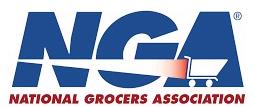 In an article by Jennifer Strailey in The Packer, independent grocers generally reacted negatively following news of the proposed acquisition of Albertsons Company by the Kroger Company in a $25 billion transaction. The National Grocers Association representing the independent sector of food distribution maintains that the combination of Kroger and Albertsons will place member stores at a disadvantage. In an article by Jennifer Strailey in The Packer, independent grocers generally reacted negatively following news of the proposed acquisition of Albertsons Company by the Kroger Company in a $25 billion transaction. The National Grocers Association representing the independent sector of food distribution maintains that the combination of Kroger and Albertsons will place member stores at a disadvantage.
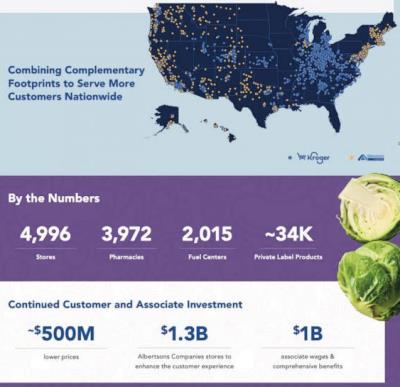 A representative of Baron’s Market based in Southern California is intent on maintaining clientele with concerted service. Rachel Shemilani, Vice-president of the company stated, “We do things differently than the large grocery stores.” She added, “As with any merger, the layoffs and store closures will be on the horizon. What do you do when your favorite grocery store closes? You search for that sense of community elsewhere.” A representative of Baron’s Market based in Southern California is intent on maintaining clientele with concerted service. Rachel Shemilani, Vice-president of the company stated, “We do things differently than the large grocery stores.” She added, “As with any merger, the layoffs and store closures will be on the horizon. What do you do when your favorite grocery store closes? You search for that sense of community elsewhere.”
Despite optimism expressed by Baron’s, it is clear that the merger will introduce economies of scales and efficiencies. If prices are passed on to consumers, both independent specialty grocers and the deep discount stores will suffer.

|
Washington State AG Intervenes in Albertson’s Acquisition |
11/02/2022 |
|
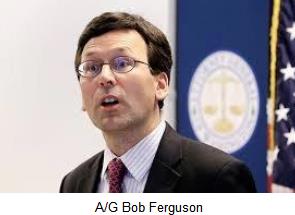 Bob Ferguson the activist Attorney General of the State of Washington, has filed suit in the King County Superior Court to prevent Albertson’s Holdings Inc. paying $4 billion as a dividend to shareholders before the sale to the Kroger Company. Bob Ferguson the activist Attorney General of the State of Washington, has filed suit in the King County Superior Court to prevent Albertson’s Holdings Inc. paying $4 billion as a dividend to shareholders before the sale to the Kroger Company.
Attorney General Ferguson stated, “Paying out $4 billion before regulators can do their job and review the proposed merger will weaken Albertsons’ ability to 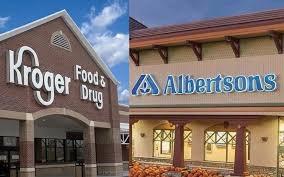 continue business operations and to compete.” continue business operations and to compete.”
The proposed acquisition of Albertsons by the Kroger Company will undergo DOJ scrutiny based on the potential to stifle competition. Albertsons, headquartered in Idaho, has a strong presence in Washington State through the Safeway banner. Kroger operates Fred Meyer and QFC stores.

|
Kroger Defends Albertsons Acquisition |
11/30/2022 |
|
 The CEO of the Kroger Company, Rodney McMullen, and his counterpart, Vivek Sankaran of Albertsons Cos., provided testimony at a hearing called by Senator Amy Klobuchar (D-MN). Currently, Senator Klobuchar chairs the subcommittee on antitrust of the Senate Judiciary Committee. The CEO of the Kroger Company, Rodney McMullen, and his counterpart, Vivek Sankaran of Albertsons Cos., provided testimony at a hearing called by Senator Amy Klobuchar (D-MN). Currently, Senator Klobuchar chairs the subcommittee on antitrust of the Senate Judiciary Committee.
The hearing was intended to evaluate the impact of the proposed transaction involving the two largest pure-play grocery chains. Both Kroger and Albertsons have agreed to divest stores before consummation of the $25 Billion transaction.
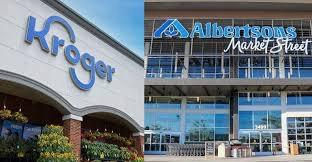 Senators representing both parties demanded reassurance that the proposed transaction would not result in store closures, higher prices to consumers and worker layoffs. All predictable outcomes. Senators representing both parties demanded reassurance that the proposed transaction would not result in store closures, higher prices to consumers and worker layoffs. All predictable outcomes.
It is evident that the acquisition of Albertsons by Kroger will lead to synergy and will benefit shareholders. Reducing the number of potential stores will be detrimental to suppliers, including the egg industry, given the leverage exerted by a combined company with 5,000 stores and 13 percent of the grocery market.

|
Albertson’s Acquisition by the Kroger Company |
12/13/2022 |
|
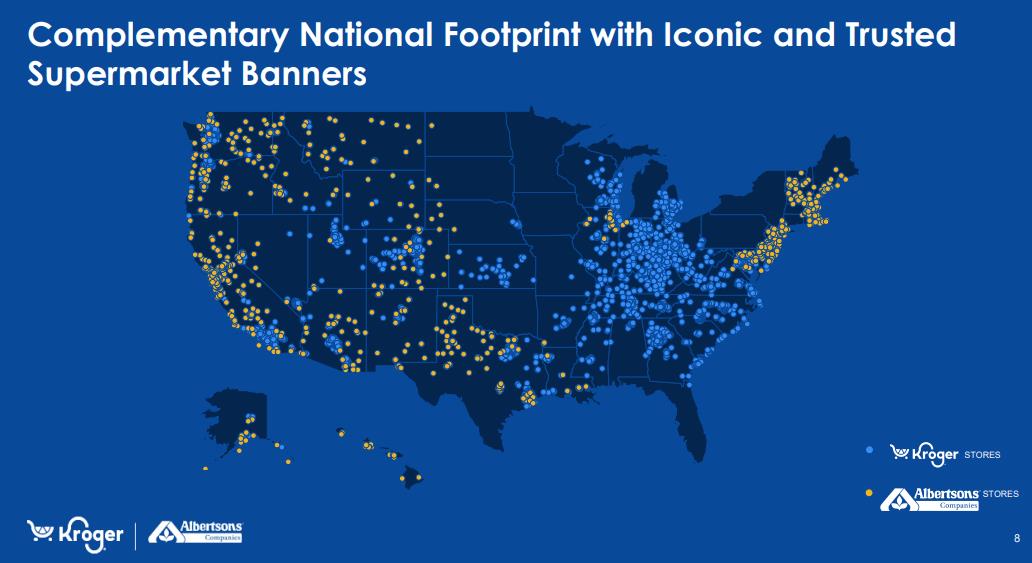 Albertson’s Company is still under a restraining order by the state of Washington to withhold payment of a special dividend equivalent to $6.85 per common share that was scheduled for release on November 7th 2022. The state of Washington holds that the dividend would reduce liquidity and impair the capacity of the company to compete before and after acquisition by the Kroger Company. The U.S. District Court for the District of Columbia denied requests by California and Illinois to impose a similar restraining order against payment of the dividend. Albertson’s Company is still under a restraining order by the state of Washington to withhold payment of a special dividend equivalent to $6.85 per common share that was scheduled for release on November 7th 2022. The state of Washington holds that the dividend would reduce liquidity and impair the capacity of the company to compete before and after acquisition by the Kroger Company. The U.S. District Court for the District of Columbia denied requests by California and Illinois to impose a similar restraining order against payment of the dividend.
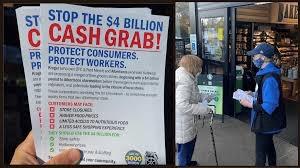 Albertson’s maintains that the Washington State Lawsuit lacks merit and is devoid of legal basis. The company avers that after payment of the dividend, liquidity will attain $3.0 billion, comprising $500 million in cash and $2.5 billion under existing lending facilities. Albertson’s maintains that the Washington State Lawsuit lacks merit and is devoid of legal basis. The company avers that after payment of the dividend, liquidity will attain $3.0 billion, comprising $500 million in cash and $2.5 billion under existing lending facilities.
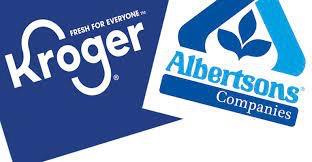 In response to U.S. Senate inquiries regarding the proposed acquisition, Kroger has assured legislators that $1.3 billion will be available for investment and enhancements, including introduction of technical innovations. Up to $1 billion will be available to enhance salaries and wages with appropriate benefits for Albertson’s employees. Gary Millerchip, CFO of Kroger estimates that over a short period, $0.5 billion will be extended to customers as cost savings arising from synergies. Kroger has outlined a path to completion of the transaction, including divestiture of a number of stores to viable competitors. In response to U.S. Senate inquiries regarding the proposed acquisition, Kroger has assured legislators that $1.3 billion will be available for investment and enhancements, including introduction of technical innovations. Up to $1 billion will be available to enhance salaries and wages with appropriate benefits for Albertson’s employees. Gary Millerchip, CFO of Kroger estimates that over a short period, $0.5 billion will be extended to customers as cost savings arising from synergies. Kroger has outlined a path to completion of the transaction, including divestiture of a number of stores to viable competitors.
The combination of Albertsons and Kroger will comprise 4,996 stores with 3,972 pharmacies, 66 distribution centers, 52 manufacturing plants and 2,015 fuel centers. Projected annual sales will amount to $2,200 million, generating $3.3 billion in earnings during the fiscal year following the acquisition.

|
Legal Challenge to Kroger-Albertson’s Merger |
2/08/2023 |
|
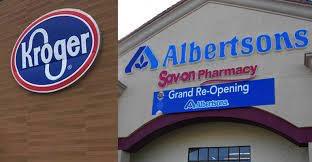 A lawsuit has been filed in the U.S. District Court for Northern California opposing the merger of the Kroger Company and Albertson’s, Inc. Plaintiffs allege that the merger will “financially cripple Albertson’s and weaken its competitive position relative to Kroger and eliminate Albertson’s from the competitive landscape”. Legal challenges have been mounted against the special cash dividend of $4 billion to be paid to shareholders, mostly comprising capital investment groups led by Cerberus Capital Management. A lawsuit has been filed in the U.S. District Court for Northern California opposing the merger of the Kroger Company and Albertson’s, Inc. Plaintiffs allege that the merger will “financially cripple Albertson’s and weaken its competitive position relative to Kroger and eliminate Albertson’s from the competitive landscape”. Legal challenges have been mounted against the special cash dividend of $4 billion to be paid to shareholders, mostly comprising capital investment groups led by Cerberus Capital Management.
The lawsuit claims that the merger and special dividend violate Section 7 of the Clayton Antitrust Act with Kroger representing 24 percent of pure-play retail grocery sales and Albertson’s as second ranked with 12 percent.
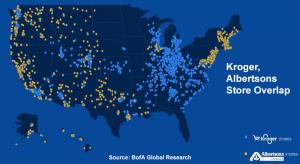 Plaintiffs comprise 25 consumers from 11 states extending from California to Massachusetts. The lawsuit claims that the proposed potential elimination of Albertson’s by Kroger poses a substantial threat to plaintiffs and to the public at large by reducing available consumer choice without providing any increase in jobs or output. Plaintiffs comprise 25 consumers from 11 states extending from California to Massachusetts. The lawsuit claims that the proposed potential elimination of Albertson’s by Kroger poses a substantial threat to plaintiffs and to the public at large by reducing available consumer choice without providing any increase in jobs or output.
Independently of the lawsuit, the Department of Justice Antitrust Division is evaluating the impact of the proposed merger but has yet to issue a statement concerning either approval or establishing requirements for divestment of stores. The joint management of Kroger and Albertson’s has prepared a list of location that would be sold in the event of the merger.

|
Teamsters Union Opposed to Kroger-Albertsons Merger |
6/21/2023 |
|
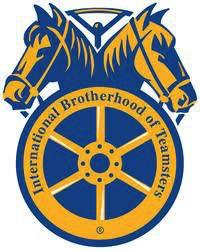 The Teamsters Union with 22,000 members working for either Kroger or Albertsons have expressed their formal opposition to the proposed merger of Albertsons and the Kroger Company. Despite negotiations relating to job security and benefits, the Union has not received any assurances from either company. The Teamsters Union with 22,000 members working for either Kroger or Albertsons have expressed their formal opposition to the proposed merger of Albertsons and the Kroger Company. Despite negotiations relating to job security and benefits, the Union has not received any assurances from either company.
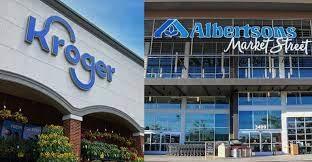 The General president of the Teamsters Union, Sean O’Brien noted, “Kroger and Albertsons management like to talk the talk on job security when they are sitting in front of Congress but talk means little when it comes to protecting our members.” He added, “We expected better from these two longtime Teamsters employers. Clearly, they are more interested in guaranteeing big payouts for management.” Opposition expressed by the Teamsters is echoed by a similar rejection of the merger by the United Food and Commercial Workers International Union. They have called for transparency and release of information that would indicate the impact on memberships of the Union and the communities served by the companies. The General president of the Teamsters Union, Sean O’Brien noted, “Kroger and Albertsons management like to talk the talk on job security when they are sitting in front of Congress but talk means little when it comes to protecting our members.” He added, “We expected better from these two longtime Teamsters employers. Clearly, they are more interested in guaranteeing big payouts for management.” Opposition expressed by the Teamsters is echoed by a similar rejection of the merger by the United Food and Commercial Workers International Union. They have called for transparency and release of information that would indicate the impact on memberships of the Union and the communities served by the companies.
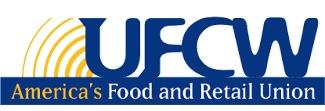 Both Albertsons and Kroger have responded to Union comments with Albertsons stating, “We have a rich history of creating quality jobs and working collaboratively alongside Teamsters. Our proposed merger with Kroger will secure the long-term future of Union jobs by establishing a more competitive alternative to large, non-union retailers.” Both Albertsons and Kroger have responded to Union comments with Albertsons stating, “We have a rich history of creating quality jobs and working collaboratively alongside Teamsters. Our proposed merger with Kroger will secure the long-term future of Union jobs by establishing a more competitive alternative to large, non-union retailers.”
The Federal Trade Commission has yet to announce their decision on the proposed merger that will at the very least require divestment of stores and other installations to viable competitors.

|
NGA and Unions Oppose Kroger-Albertsons Merger |
7/26/2023 |
|
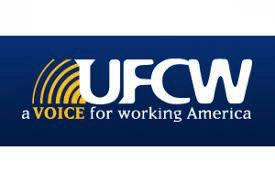 Following a position statement from the Federal Trade Commission (FTC) and the Department of Justice, the National Grocers Association (NGA) and the United Food and Commercial Workers union (UFCW) continue their opposition to the merger. Both the NGA and the UFCW refer to the FTC policy as recently defined revision states, “Mergers should not significantly increase concentration in highly concentrated markets and should not otherwise substantially lessen competition or tend to create a monopoly.” Following a position statement from the Federal Trade Commission (FTC) and the Department of Justice, the National Grocers Association (NGA) and the United Food and Commercial Workers union (UFCW) continue their opposition to the merger. Both the NGA and the UFCW refer to the FTC policy as recently defined revision states, “Mergers should not significantly increase concentration in highly concentrated markets and should not otherwise substantially lessen competition or tend to create a monopoly.”
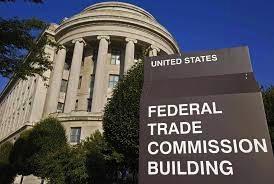
Critics of the proposed merger note that the transaction would conflict with the revised FTC guidelines. The NGA is concerned over a single large supermarket entity achieving dominance over food distribution. The unions are concerned over job security wages and benefits. Consumer groups represented by states’ Attorneys General are concerned over the potential for higher prices.

|
Opposition to Kroger-Albertsons Merger Intensifies |
8/21/2023 |
|
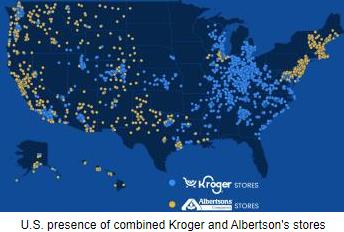 The Secretaries of State representing seven of 50 states have submitted a letter to the Federal Trade Commission opposing the merger/acquisition by the Kroger Company with Albertsons. The Secretaries of State representing seven of 50 states have submitted a letter to the Federal Trade Commission opposing the merger/acquisition by the Kroger Company with Albertsons.
The letter addressed to FTC Chair, Lina Khan, stated, “We are strongly opposed to this merger and urge you to stop this corporate consolidation that is draining Americans of their hard-earned wages and livelihoods.”
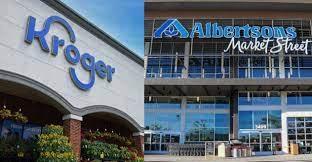
State AGs participating in the opposition comprised Arizona, Colorado, Maine, Minnesota, New Mexico, Rhode Island and Vermont.
The Federal Trade Commission is taking an inordinate amount of time to rule on the proposed transaction. It is understood that the Agency is receiving comments from unions, grocers’ associations and especially, small-scale chains that, in theory, would be most impacted by the merger/acquisition.

|
Additional Headwinds for Kroger-Albertson’s Merger |
10/19/2023 |
|


|
Rob Bonta, State Attorney General for California will file a lawsuit opposing the proposed merger between the Kroger Company and Albertson’s Corporation. California bases the action on
- Concerns over higher prices for consumers as a result of reduced competition at the retail level,
- Lower payments to farmers in California due to consolidation and increased buying power and
- The inevitability of store closures and layoffs.
In advance of the proposed merger and to discourage future transactions involving consolidation, California has enacted laws protecting workers. Participants in merger discussions will be obliged to notify the State Attorney General six months before completion of the transaction providing details of potential impacts on consumers, workers and suppliers.
|
|

A second bill to strengthen the California Grocery Workers Retention Act incorporated warehouse workers.
The California State Attorney General has met formally with the Federal Trade Commission, expressing concerns over the Kroger-Albertson’s merger and the potential effect on nation’s most populus state.
|

|
Kroger-Albertsons Merger Delayed |
1/17/2024 |
|
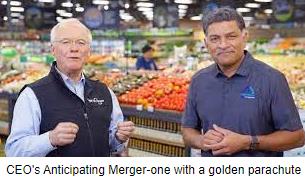 Despite earlier predictions that the Albertsons-Kroger merger would be completed during the first quarter of 2024 it is now evident that the transaction will be delayed until the second half of this year at the earliest. The FTC has yet to rule on the merger with a previously scheduled decision in mid-December delayed until February. The lawsuit filed by Washington State Attorney General Bob Ferguson is a further complication. This filing may be reflected by similar action in mid-Atlantic and western states by Attorneys General seeking reelection. Despite earlier predictions that the Albertsons-Kroger merger would be completed during the first quarter of 2024 it is now evident that the transaction will be delayed until the second half of this year at the earliest. The FTC has yet to rule on the merger with a previously scheduled decision in mid-December delayed until February. The lawsuit filed by Washington State Attorney General Bob Ferguson is a further complication. This filing may be reflected by similar action in mid-Atlantic and western states by Attorneys General seeking reelection.
Kroger has offered benefits to workers and has committed to recognizing unions currently opposed to the transaction.
The merger would create a powerful force with strong leverage over suppliers that will inevitably be to their determent.

|
Kroger “Charm Offensive” Unsuccessful |
2/27/2024 |
|
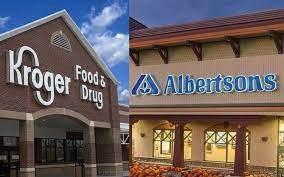 In an attempt to facilitate FTC approval of the proposed merger with Albertsons, Kroger committed to reducing shelf prices among the combined stores by $500 million following completion of the $25 billion transaction. The question arises as to whether this was window dressing to influence the FTC towards a positive outcome? In the event the offer was unsuccessful given the action by the Agency on February 26th. Alternatively offering to reduce prices may have represented an exercise in predation to attract clientele following the merger with subsequent ratcheting up of prices. We have seen this movie before. In an attempt to facilitate FTC approval of the proposed merger with Albertsons, Kroger committed to reducing shelf prices among the combined stores by $500 million following completion of the $25 billion transaction. The question arises as to whether this was window dressing to influence the FTC towards a positive outcome? In the event the offer was unsuccessful given the action by the Agency on February 26th. Alternatively offering to reduce prices may have represented an exercise in predation to attract clientele following the merger with subsequent ratcheting up of prices. We have seen this movie before.
Kroger Company also offered to invest $1.3 billion in upgrades of Albertsons stores. Similar promises to cut prices and improve stores were made before acquisition of the Harris Teeter chain. At the present time, Harris Teeter, regarded as an “upmarket” banner has prices considerably higher for the same items than local North Carolina competitors including Food Lion.
Before releasing their decision the FTC had time to review the merger and consulted with the two unions, state Attorneys General and other parties involved. This suggests that they will be able to defend their decision to block the transaction given the inevitability of a hearing before an Administrative Law Judge and subsequent prolonged litigation.
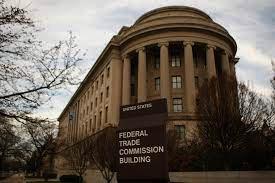
Kroger continues to promote the transaction that would increase the market share of the combined companies to compete with Walmart the leader in grocery retail and on-line sales. To support their position Kroger and Albertsons have established a joint website emphasizing the potential cost savings for consumers.
Irrespective of whether shoppers would have benefitted over the short term, the proposed merger had negative implications for suppliers, especially those west of the Mississippi.

|
Kroger and Albertsons Face Uphill Battle Over Proposed Merger |
3/31/2024 |
|
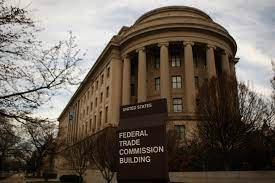 Both the Kroger Company and Albertsons Corporation have filed rebuttals to the Federal Trade Commission move to block the proposed merger. Both the Kroger Company and Albertsons Corporation have filed rebuttals to the Federal Trade Commission move to block the proposed merger.
Albertsons maintains that the FTC is “willfully ignorant of basic and critical facts” and the Commission ignores the “realities of the competitive grocery landscape”. In the Albertsons submission, the company cited extreme competition from Walmart, Target, Costco and Amazon.
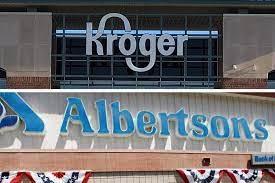 The rebuttals also claim that C&S will be capable of successfully managing the stores to be divested. The companies note that labor in their stores is both non-union and union affiliated and that the merger would not dilute the power of unions. The rebuttals also claim that C&S will be capable of successfully managing the stores to be divested. The companies note that labor in their stores is both non-union and union affiliated and that the merger would not dilute the power of unions.
It is a matter of fact that the FTC embarked on an extensive nine-month evaluation of the grocery market interviewing suppliers, consumer groups and unions in addition to inviting submissions from both Kroger and Albertsons. To claim that the FTC based its decision on distortion and ignorance would appear to be an inappropriate and unproductive approach in advance of the review by an FTC administrative law judge.
Judge Andrew Luxen of the Denver District Court has announced that the preliminary injunction preventing the merger between Albertsons Corporation and the Kroger Company would be heard on August 12th and the proceedings will run through the 22nd. The State of Colorado filed the lawsuit on February 14th and is joined by the Attorneys General of eight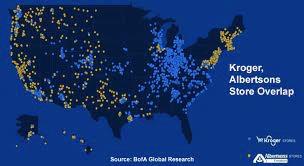 states and Washington, D.C. states and Washington, D.C.
The Kroger-Albertsons merger agreement was due to have been concluded on October 9th. The reality of prolonged litigation will necessitate an extension since a cancellation appears unlikely.

|
Additional Kroger-Albertson Divestiture Plan Rejected by FTC |
4/24/2024 |
|
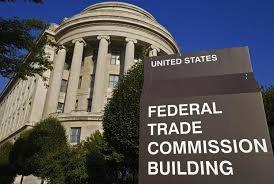 In an attempt to appease the Federal Trade Commission (FTC), The Kroger Company and Albertsons Companies announced that 166 additional stores will be added to the list that will be divested to C&S Wholesale Grocers for a total of 579 locations. In an attempt to appease the Federal Trade Commission (FTC), The Kroger Company and Albertsons Companies announced that 166 additional stores will be added to the list that will be divested to C&S Wholesale Grocers for a total of 579 locations.
According to a Kroger press release, C&S will operate the Safeway banner in Arizona and Colorado and will license the Albertsons banner in California and Wyoming. Presumably this will be convenient for Kroger and Albertsons should the anticipated transaction be concluded and subsequently C&S goes the way of Haggen after the Safeway transaction in 2016.
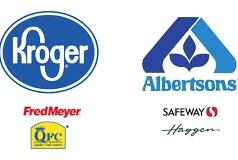 The merger elicited a negative response from the FTC. The Agency stated, “The proposal completely ignores many affected regional and local markets where Kroger and Albertsons compete today.” The statement added, “In areas where there are divestitures, the proposal fails to include all of the access, resources and capabilities C&S will need to replicate the competitive intensity that exists today between Kroger and Albertsons. Even if C&S were to survive as an operation, Kroger and Albertsons proposed divestitures still do not solve the multitude of competitive issues created by the proposed acquisition.” The merger elicited a negative response from the FTC. The Agency stated, “The proposal completely ignores many affected regional and local markets where Kroger and Albertsons compete today.” The statement added, “In areas where there are divestitures, the proposal fails to include all of the access, resources and capabilities C&S will need to replicate the competitive intensity that exists today between Kroger and Albertsons. Even if C&S were to survive as an operation, Kroger and Albertsons proposed divestitures still do not solve the multitude of competitive issues created by the proposed acquisition.”
In support of the proposed merger/acquisition, the CEO of The Kroger Company, Rodney McMullen stated, “Our proposed merger with Albertsons will bring lower prices and more choices to more customers and secure the long-term future of unionized grocery jobs.” McMullen noted that the divestiture plan would ensure that no stores will close, and all frontline associates will remain employed with continuation of existing collective bargaining agreements. The Kroger Company intends to support C&S operations “through expanded transition services.”

|
Ranking of U.S. Grocery Chains |
6/04/2024 |
|
 Scott Moses of Solomon Partners is retained by Albertsons to promote the proposed merger of his client company with Kroger. In a recent article in Scott Moses of Solomon Partners is retained by Albertsons to promote the proposed merger of his client company with Kroger. In a recent article in
Supermarket News, Moses makes a case for the divestment of 579 stores to C&S principally in western and mid-Atlantic states and in Illinois. The article includes a ranking of supermarkets by revenue and numbers of stores assuming that the merger is approved, with C&S acquiring 579 stores and 8 distribution centers.
|
Rank
|
Chain
|
Annual Sales $ Million
|
|
1
|
Walmart+Sam’s
|
321
|
|
2
|
Kroger-Albertsons
|
160
|
|
3
|
Costco
|
98
|
|
4
|
Amazon-WFM
|
64
|
|
5
|
Target
|
55
|
|
6
|
Ahold Delhaize
|
52
|
|
7
|
Publix
|
47
|
|
8
|
HEB
|
34
|
|
9
|
Dollar General
|
31
|
|
10
|
Aldi
|
27
|

With respect to numbers of stores, grocery chains can be ranked as follows:
|
Rank
|
Chain
|
Numbers of Stores
|
|
1
|
Dollar General
|
20,022
|
|
2
|
Dollar Tree
|
16,744
|
|
3
|
Walmart+Sam’s
|
5,214
|
|
4
|
Kroger-Albertsons
|
4,414
|
|
5
|
Aldi
|
2,772
|
|
6
|
Ahold Delhaize
|
2,048
|
|
7
|
Target
|
1,956
|
|
8
|
Publix
|
1,360
|
The list of stores excludes pharmacy chains CVS, Walgreen’s and Rite-Aid.

|
Kroger-Albertsons List Stores to be Divested |
7/14/2024 |
|
In advance of an August 26th hearing in the U.S. District Court for the district of Oregon, and an impending Federal Trade Commission hearing in October, the Kroger Company has released a list of facilities to be divested to obtain approval for the proposed merger with Albertsons Corporation. It is intended to divest 579 Kroger and Albertsons stores across 18 states and Washington, D.C.
 Stores will include 124 in Washington, 91 in Colorado, 101 in Arizona and 63 in California. In addition, the combination of the two chains will divest six distribution centers in western states to C&S Wholesale Grocers. This company will license the Albertsons banner in California and Wyoming and the Safeway banner in Arizona and Colorado. Kroger will be used for Albertsons and Safeway stores retained in the merger. C&S will acquire the Haggen banner among others. C&S will pay Kroger and Albertsons $2.9 billion for the stores and other assets. Stores will include 124 in Washington, 91 in Colorado, 101 in Arizona and 63 in California. In addition, the combination of the two chains will divest six distribution centers in western states to C&S Wholesale Grocers. This company will license the Albertsons banner in California and Wyoming and the Safeway banner in Arizona and Colorado. Kroger will be used for Albertsons and Safeway stores retained in the merger. C&S will acquire the Haggen banner among others. C&S will pay Kroger and Albertsons $2.9 billion for the stores and other assets.
The merger is opposed by the Federal Trade Commission and the Attorneys General of eight Wes tern states. The United Food and Commercial Workers Union opposes the merger with five Locals contending that the intended divestment does not soften union opposition to the transaction. In a joint statement the Locals noted, “We remain focused on stopping the proposed mega-merger for the same reason we have stated since it was first announced twenty months ago.” tern states. The United Food and Commercial Workers Union opposes the merger with five Locals contending that the intended divestment does not soften union opposition to the transaction. In a joint statement the Locals noted, “We remain focused on stopping the proposed mega-merger for the same reason we have stated since it was first announced twenty months ago.”
To counter arguments that C&S Wholesale Grocers would be unable to manage 579 stores, Albertsons will detach Chief Operating Officer, Susan  Morris, to serve as the President and CEO of the retail activities divested by Kroger and Albertsons. Ms. Morris has served as Executive Vice President of Albertsons Corp. since January 2018 and is a 38-year veteran of retail grocery. A graduate of Colorado State University, Ms. Morris is a recognized leader in the industry having risen from a customer service clerk to her current executive position. Morris, to serve as the President and CEO of the retail activities divested by Kroger and Albertsons. Ms. Morris has served as Executive Vice President of Albertsons Corp. since January 2018 and is a 38-year veteran of retail grocery. A graduate of Colorado State University, Ms. Morris is a recognized leader in the industry having risen from a customer service clerk to her current executive position.

|
Kroger-Albertsons Merger is Running Up Legal Bills |
8/06/2024 |
|

According to press reports, Kroger has spent close to $500 million on legal fees and administrative expenses associated with the proposed merger with Albertsons Corp. proposed almost two years ago. The other party in the transaction, Albertsons, has spent over $300 million, based on SEC filings. Kroger faces a walk-away charge of $600 million should the transaction not be completed.
Kroger maintains that the merger will be beneficial to employees and consumers. Promises are being made to lower prices and increase wages after the merger. The FTC supported by the Attorneys General of nine states oppose the merger together with the United Food and Commercial Workers Union.

Kroger, the initiator of the transaction has a tough battle ahead, especially if there is no change in Administration, come January 2025.

|
Ohio AG Opposes FTC Lawsuit |
8/20/2024 |
|
Dave Yost, Attorney General of Ohio, has filed a brief with the U.S. District Court in Oregon presenting cause to reject the lawsuit brought by the Federal Trade Commission and nine state Attorneys General to block the merger between the Kroger Company and Albertsons Corporation.

The Ohio brief avers that the opposition is “based on a flawed understanding of the marketplace in which the two retailers operate”. Yost claims that the Federal Trade Commission has “tunnel vision” and that there is no reason to delay the deal.
It is a matter of record that the attorneys general of Arizona, California, the District of Columbia Illinois, Maryland, Nevada, New Mexico, Oregon and Wyoming oppose the transaction since they maintain that the merger would reduce competition and ultimately raise the price of food for consumers in their constituencies. It is considered noteworthy that the filing in opposition to the Oregon litigation was initiated by the Attorney General of Ohio, the home state of Kroger, with headquarters in Cincinnati. Is this not a situation of Kroger using the Office of the A/G as its law firm?
|


|

|
Kroger Files a Lawsuit to Restrain FTC |
8/23/2024 |
|
 Kroger has initiated litigation with the U.S. Federal Trade Commission (FTC). The Agency intends to block the proposed merger between the Kroger Companies and Albertsons Corporation. Kroger maintains that the scheduled FTC internal hearing represents an “unlawful proceeding” and is unconstitutional. Kroger is requesting a hearing in a federal court. Kroger has initiated litigation with the U.S. Federal Trade Commission (FTC). The Agency intends to block the proposed merger between the Kroger Companies and Albertsons Corporation. Kroger maintains that the scheduled FTC internal hearing represents an “unlawful proceeding” and is unconstitutional. Kroger is requesting a hearing in a federal court.

The Company will, however, have its day in court before a federal judge in Portland, Oregon in late August with Plaintiffs comprising the FTC and attorney general of Oregon and eight other states.

|
Kroger Has Its Day in Court |
9/03/2024 |
|

One week into the projected three-week hearing on the proposed merger between the Kroger Company and Albertson’s Corporation, there is no indication of an outcome. U.S. District Judge, Adrienne Nelson, will rule on the action to derail the transaction initiated by the Federal Trade Commission and supported by the attorneys general of nine states.
The FTC maintains that the merger would be prejudicial to workers and would ultimately result in increased prices for consumers.
Kroger maintains that it is necessary to become larger through mergers or acquisitions to compete with Walmart, Amazon and Costco. Kroger and Albertson’s have offered to divert $1 billion to reduce prices in stores with Albertsons running approximately ten percent higher than at Kroger. Both parties to the proposed merger have agreed to recognize unions as a requirement for the transaction. Kroger and Albertsons announced they would divest 579 stores to C&S Wholesale Grocers. This was an upward adjustment after a previous plan to sell 413 stores was rejected by the FTC.

Testimony during the first week of the hearing revealed internal messages among Kroger senior management relating to setting prices for eggs and milk at levels significantly higher than the trajectory of inflation. This strategy was intended to determine what consumers were willing to pay in order to maximize margins. This evidence plays into current political rhetoric concerning allegations of price gouging and will in some measure indirectly influence public opinion if not the court’s ruling.
Attorney Susan Musser, appearing for the FTC, noted in opening arguments, “Stopping a multibillion-dollar deal will keep in place bigger competition that acts as a check on rising grocery prices and encourages further improvements in quality and innovation.”
Haggen is the 600-pound gorilla in the corner of the Court. In 2014, Albertsons merged with Safeway, divesting stores in compliance with FTC concerns over limiting competition. Within a year, Haggen was bankrupt and the stores that were divested returned to the Safeway banner. Both unions and the FTC maintain that a similar situation will occur, effectively negating the promises made by Kroger and Albertsons.
An additional minor issue that emerged relates to alleged destruction of text messages by Kroger managers. The FTC informed the companies on November 3rd, 2022, within days of the official announcement, that all documentation pending completion of an FTC review should be retained. The FTC claims that Kroger “failed to preserve responsive text messages after receiving a preservation hold and numerous reminders”. Albertsons management claimed that an auto-delete feature on managers’ phones was responsible for the apparent disappearance of messages. One exchange emerging from discovery confirmed an Albertsons manager expressing the opinion that the merger would ultimately result in higher prices. The FTC claims that allowing individual managers discretion as to deletion of messages constituted “willful destruction of evidence”.
Irrespective of the outcome of the Oregon hearing, the show will go on. Lawsuits have been filed in state courts in both Colorado and Washington at which both the FTC and Kroger-Albertsons will present expert witnesses analyzing the effect on suppliers, consumers and unions of the proposed merger. And then there will be appeals--.

|
Distorted Logic Advanced by Kroger Attorney |
9/14/2024 |
|
In the ongoing lawsuit filed by the FTC and supported by the Attorneys General of nine states, Kroger is defending the proposed merger/acquisition of Albertsons Corp. In his opening statement, Matthew Wolf representing Kroger stated, “If you sell more stuff your hourly wages go up, your costs go up, your costs of your employment go up.” He added, “Other expenses such as warehouse fees, cleaning products and transportation costs are all real costs that really decrease your profits.”

While attaining competence in the prestige law firm of Arnold and Porter, Attorney Wolf appears to be either unaware of or was distorting the effect of volume on fixed and variable costs. In a given supermarket, interest, depreciation, overhead, management, utilities and most of the labor costs are categorized as ‘fixed’ and are not influenced by volume within limits. “Selling more stuff” implies increased volume and hence more revenue. Incremental sales value offsets fixed costs and within the limits of imposing additional variable costs, additional ‘traffic’ will contribute to profitability and hence the bottom line.
The costs associated with operating a dairy cooler selling eggs are predominantly categorized as fixed costs involving capital invested, depreciation on the equipment, the salary of the dairy manager and a given number of required labor units. It is possible by reducing the price of eggs to increase sales volume and hence revenue, depending on the unit price obtained. The incremental margin will offset the fixed costs of operation of the dairy department and contribute to store profitability. Obviously if the coolers require restocking beyond the capacity of the existing labor force, additional expenditure as either overtime or an additional employee will add incrementally to variable costs.

If Attorney Wolf believes that increasing volume and sales decreases profit, an economics 101 textbook may disabuse him of his misunderstanding. It is of course accepted that the quotation from the opening statement was legal rhetoric. Irrespective of veracity, his statement was entered into the court record but was essentially irrelevant to the ultimate disposition of case. Whether a provisional injunction is granted to the FTC to block the transaction will be decided on political considerations based on the potential to reduce competition at the expense of suppliers and consumers.

|
Kroger CEO Denies Price Gouging |
9/18/2024 |
|

In testimony in the trial reviewing the FTC request for a preliminary injunction to block the merger between Kroger and Albertson’s, Rodney McMullen, CEO of the Kroger Company denied price gouging or any intention of raising prices if the proposed transaction is completed.

McMullen attributed high costs for groceries after the inflationary post- COVID period to an escalation in the cost of fuel, credit card swipe fees and groceries sold by his and other chains.
McMullen stated that “Kroger would absolutely not” raise prices if the merger is concluded and has gone on record as offering to apply $1 billion to reduce prices in the year following the merger between the companies.
McMullen pointed to competition as a mechanism to maintain prices by stating, “You can’t price above the market.” This being said, consumers should not be in a position of being limited to where they can purchase their groceries. The entire case rests on the contention by the FTC and the Attorneys General of nine states that the transaction would effectively reduce competition. This is despite the intention to divest over 500 stores in 18 states to C & S wholesale grocers. This expedient is regarded by many observers as an impractical and nonviable strategy citing the previous history of Haggen acquiring divested Safeway stores.
The FTC maintains that Kroger does not compete with Aldi, a deep discounter; Amazon, predominantly an on-line enterprise; dollar stores, serving a different spatial and earnings demographic or Target offering a broad range of merchandise in addition to groceries. The FTC considers Kroger and Albertsons to be direct competitors as pure-play grocers with their combination potentially detrimental to consumers, workers and suppliers, especially in western states.

|
|
|